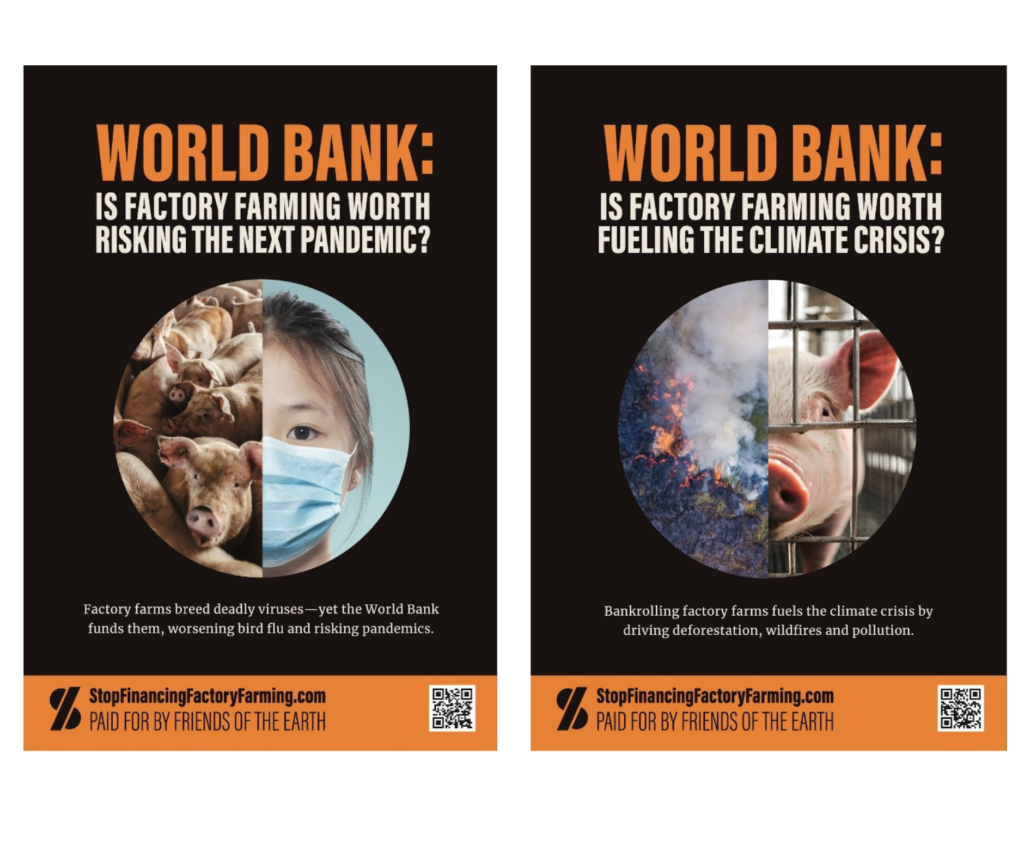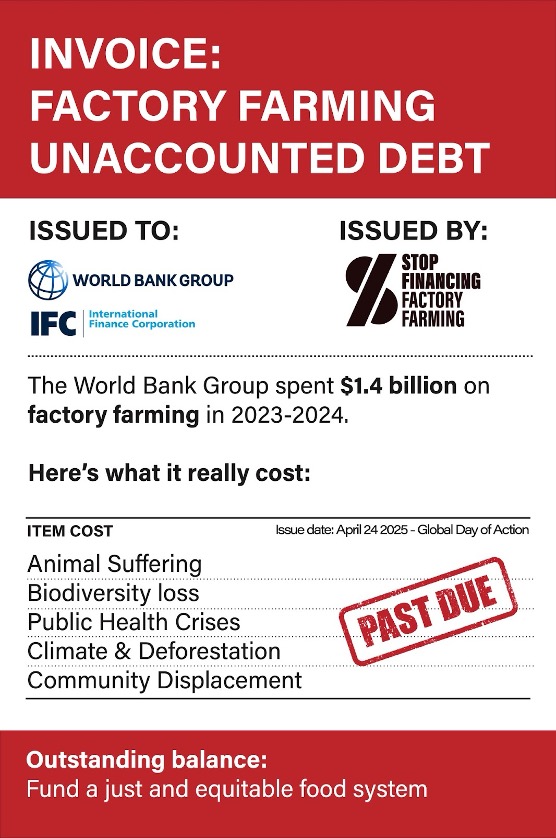Why We’re Focusing on the World Bank Spring Meetings
Stop Financing Factory Farming
3rd April '25

The World Bank Group has committed to doubling its agricultural and agribusiness investments to $9 billion annually by 2030. At the same time, experts around the world are sounding the alarm about the role of industrial livestock production in driving the climate crisis, biodiversity loss, and the risk of future pandemics.
As civil society organizations, researchers, and advocates gather for the 2025 World Bank Spring Meetings, we’re asking a simple but urgent question:
“Is factory farming worth it?“
Featured Event: Civil Society Policy Forum Panel
How Can IFC Support the Shift to Sustainable Food Systems?
April 23, 2:30pm EST | Civil Society Policy Forum
Speakers:
– Anup Jagwani, Head of Global Agribusiness, IFC
– Lizah Makombore, Institute of Agroecology, University of Vermont
– Megan Waters, FAIRR Initiative
Why it matters:
This session brings civil society voices and IFC leadership into dialogue to discuss where sustainable food system finance is headed—and how IFC can lead the transition. Join us to explore practical alternatives and opportunities to shift funding away from high-risk industrial models and redirect investments toward sustainable agricultural systems to mitigate another global health threat.
The Evidence Behind the Question: Is Factory Farming Worth It?
In the past two years, the World Bank Group has invested $1.4 billion in industrial livestock operations—despite growing evidence that this model of food production undermines human health, environmental goals, and sustainable development outcomes.
Recent reports point to factory farming’s role in:
– Zoonotic disease emergence (including bird flu)
– Global antibiotic resistance
– High greenhouse gas emissions
– Deforestation and biodiversity loss
– Animal welfare and rural livelihood concerns
A 2023 study on bird flu concluded:
“This panzootic did not emerge from nowhere, but rather is the result of 20 years of viral evolution in the ever-expanding global poultry population.”
And the Center for Biological Diversity has stated:
“Factory farming is at the heart of the latest spread of bird flu.”
S3F raised these concerns in a public letter to World Bank President Ajay Banga earlier this year, and received no response.
As the IFC undertakes a review of its Performance Standards, and the World Bank evolves its development approach, this moment calls for critical reflection on whether current agricultural investments are aligned with global public goods.

What the Coalition is Doing – And How You Can Get Involved
- April 23: Civil Society Panel at the CSPF (see above)
- April 24, 12pm EST: Letter delivery and symbolic invoice stunt at the World Bank Visitors Entrance led by S3F Indigenous Youth Ambassador Xananine Calvillo Ramirez
- Not in DC? Find an action near you!
- Our bus shelter ads surrounding World Bank HQ – highlighting the hidden costs of factory farming
Visiting DC? Take a picture of our bus shelter ads and tag us on social media:
